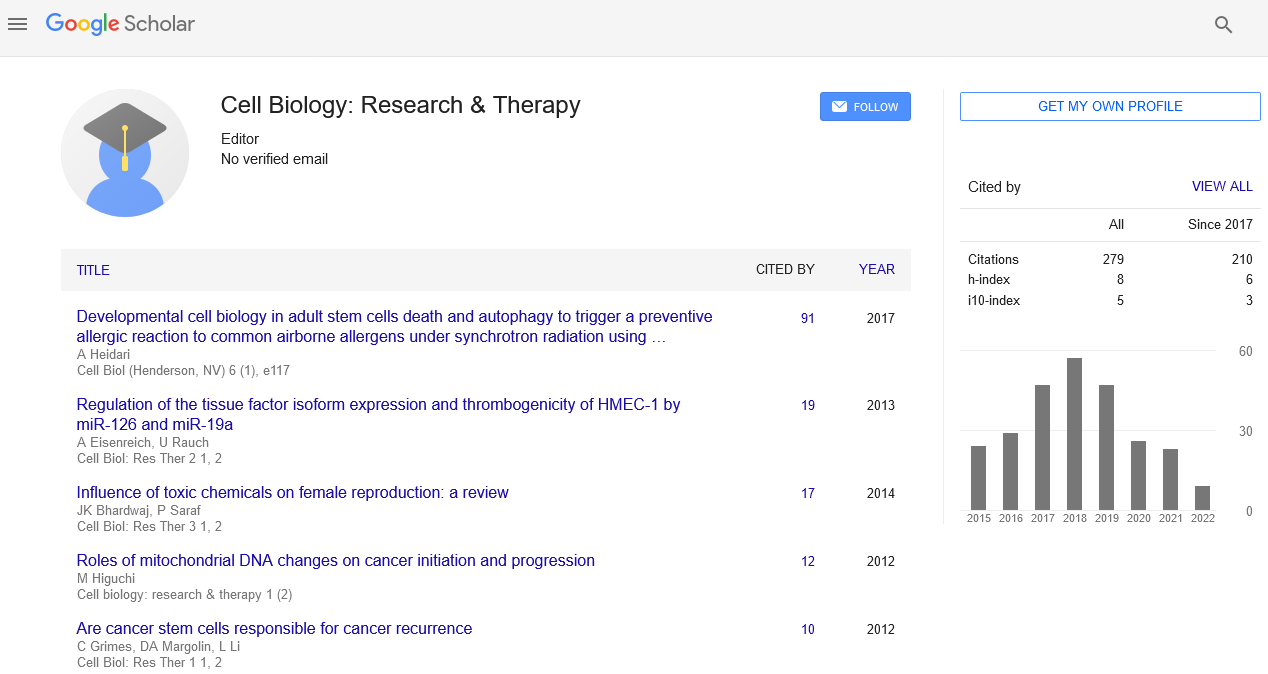Short Article, Cbrt Vol: 10 Issue: 7
CyH enhances NSCLC cell sensitivity to Gefitinib by mediating EGFR activation and PD-L1 expression
Xudong Tang*
Guangdong Medical University, China
*Corresponding Author: Xudong Tang , Guangdong Medical University, China
Accepted date: November 15, 2021
Abstract
In our previous study, we have isolated cytochalasin H (CyH) from endophytic fungus derived from mangrove plant in Zhanjiang. Recently, epidermal growth factor receptor (EGFR) activation and programmed cell death 1 ligand (PD-L1) expression have been demonstrated to mediate non-small cell lung cancer (NSCLC) resistance to Gefitinib. Here, we further investigated the effect of CyH on EGFR activation and PD-L1 expression and Gefitinib sensitivity in NSCLC cell lines, A549 (wild-type EGFR), HCC827 (EGFR mutation), and NCI-H1975 (dual EGFR mutations and acquired Gefitinib resistance). Our results showed that CyH significantly inhibited EGFR activation and PD-L1 expression in A549, HCC827, and NCI-H1975 cells. Additionally, CyH dramatically promoted the inhibitory effect of Gefitinib on proliferation of A549 and HCC827 cells, and enhanced NCI-H1975 cell sensitivity to Gefitinib (P<0.05). Moreover, CyH increased the inhibitory effect of Gefitinib on EGFR activation and PD-L1 expression in A549, HCC827 and NCI-H1975 cells. Mechanically, CyH was found to inhibit the activation of JAK3-STAT signaling pathway. Taken together, our findings suggest that CyH enhances NSCLC cell sensitivity to Gefitinib by mediating EGFR activation and PD-L1 expression, which may be related to the inhibition of JAK3-STAT signaling pathway.
 Spanish
Spanish  Chinese
Chinese  Russian
Russian  German
German  French
French  Japanese
Japanese  Portuguese
Portuguese  Hindi
Hindi 